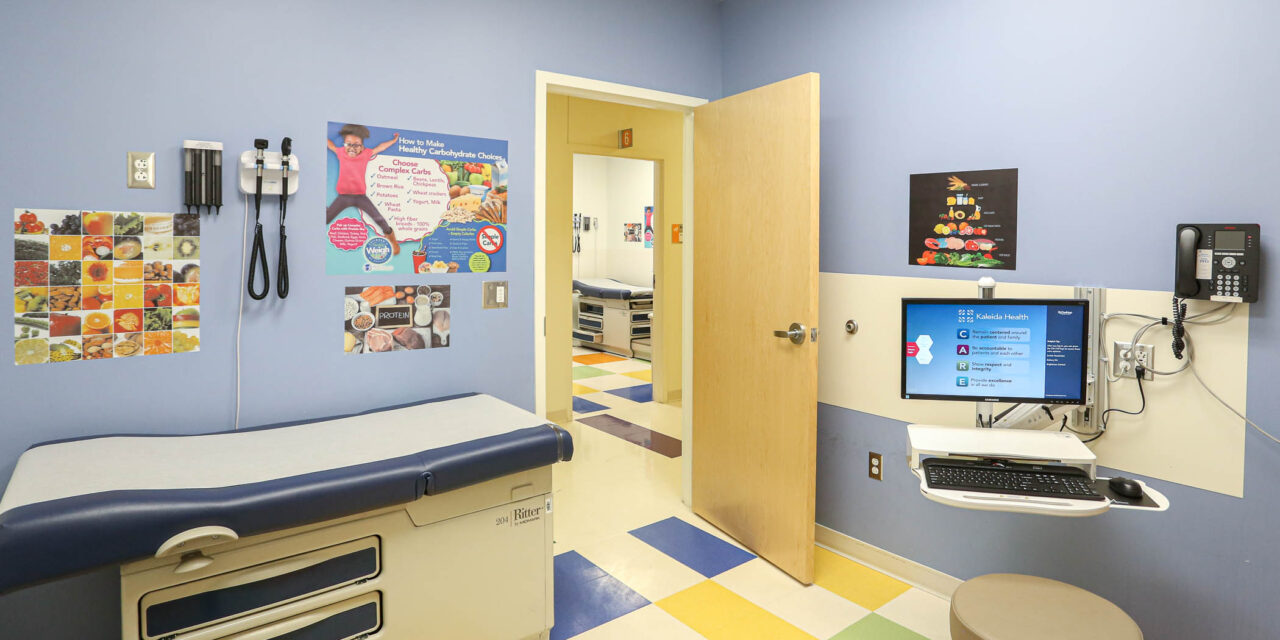by Steven E. Lipshultz, MD, FAAP, FAHA
Healthy Weigh of Buffalo is a comprehensive personalized program that assists children and adolescents with their weight loss and health goals, and is the only center of its kind in the region. With over one-third of children and adolescents in the US classified as overweight or obese, the program is more important than ever. Nearly one in four preschoolers in some parts of the US are obese or overweight, and one in 10 have high blood pressure problems. Obesity can have significant physical and psychological long-term consequences.
Childhood Obesity and its Risks
Despite school- and community-based efforts to promote healthy behaviors at a young age, one-third of children and adolescents are classified as overweight or obese, a number expected to grow to 250 million by 2030. Diets high in sugar, oil, starch, and fat, along with increasingly sedentary lifestyles are contributing factors. Overweight preschoolers are at a higher risk of obesity by the end of fifth grade than their peers who are not overweight. Children of color, particularly Black and Hispanic children, are at the greatest risk for childhood obesity and chronic diseases in adulthood. Diseases include type 2 diabetes, cardiovascular disease, certain cancers, and severe cases of COVID-19. During COVID-19, children’s body mass index nearly doubled compared to before COVID-19, likely due to reduced access to healthier food choices and organized exercise programs.
Studies and Childhood Obesity
Childhood obesity is also linked to poor cognitive brain performance in adults in their mid-30s. A Finnish study showed that individuals with obesity from childhood to adulthood have lower visual processing speed and more problems paying attention. A US study revealed higher blood sugar levels in adolescents (prediabetes) increased dramatically in recent years, which increased their risk for type 2 diabetes, heart disease, and stroke. Although blood sugar rates in study participants went from 11.6 percent to 28.2 percent from 1999 to 2018, 80 percent of those studied were unaware of their condition.
Efforts Required to Reduce Childhood Obesity
Reducing childhood obesity requires improved public health efforts to increase physical activity, improve nutrition, promote good sleep habits, and reduce stress. It also requires efforts by parents and caretakers to adopt healthier lifestyles, as children copy their example. Recommendations include taking kids grocery shopping and picking out healthy items, limiting processed foods and portion sizes, and participating in family-based behavioral treatments to help children who feel shame about their weight. Shifting parents’ and the public’s mental model away from blame and stigma, combined with improved obesity prevention messaging, can help children feel loved and accepted.
Food, Exercise, Healthy Habits, and More
Healthier food must be made more accessible and affordable to enable eating a variety of vegetables, fruit, nuts, whole grains, low-fat or fat-free dairy products, lean meat and fish, and limiting trans fats, processed meats, and sweetened beverages. Increased activity is also important. A one-year-old requires 900 calories a day; a 14- to 18-year-old-girl requires 1,800 calories; a 14- to 18-year-old boy requires 2,000 calories. Preschoolers require about three hours of active outdoor play and structured movement games daily, and older children should engage in 60 minutes per day of moderate to vigorous activity. Families should also consider taking walks together, and eating at consistent times in a relaxed environment. Limiting screen time to no more than one to two hours daily, and removing TV and mobile screen devices from the bedroom also helps. For those who are unresponsive to all of these interventions, the American Academy of Pediatrics has found that bariatric surgery is a safe and effective treatment for the nearly four million adolescents with severe obesity.
Steven E. Lipshultz, MD, FAAP, FAHA, is Professor and Chair of the Department of Pediatrics at UB Jacobs School of Medicine and Biomedical Sciences, Pediatric Chief of Service at Kaleida Health, Medical Director of Pediatric Services at John R. Oishei Children’s Hospital, and President and CEO of UBMD Pediatrics Medical Group. Learn more about the Healthy Weigh program, meet the team, learn about cooking classes, metabolic and bariatric surgery, and more at https://www.ochbuffalo.org/care-treatment/healthy-weigh or call 716-323-6120.












